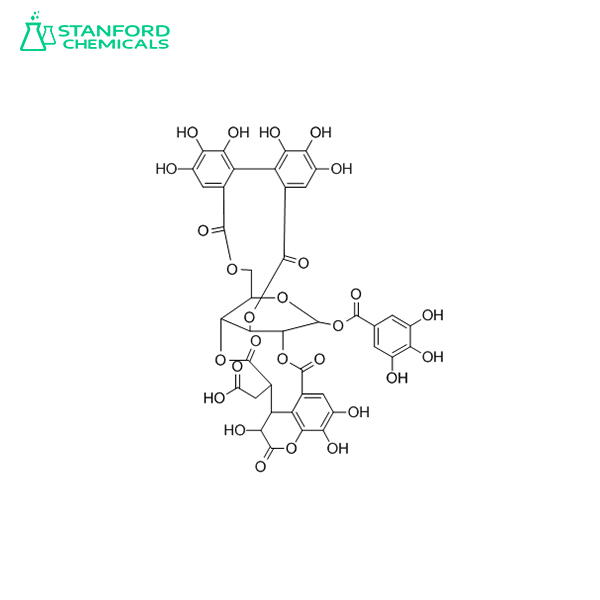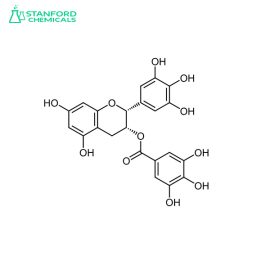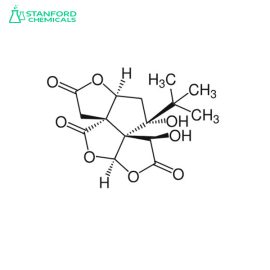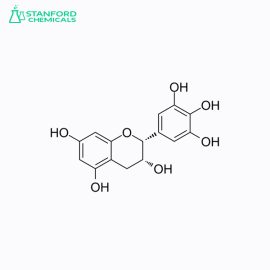Chebulagic acid(RG)
Chebulagic acid, a hydrolyzable tannin from Terminalia chebula, showcases antioxidant, anti-inflammatory, antiviral, and anticancer properties, being investigated for applications in pharmaceuticals, dietary supplements, and cosmetics, highlighting its diverse therapeutic potential.
Overview:
Chebulagic acid, a hydrolyzable tannin derived from Terminalia chebula (commonly known as Haritaki) and other plants, is recognized for its broad pharmacological properties. This compound exhibits potent antioxidant, anti-inflammatory, antiviral, and anticancer activities, making it a subject of interest in both traditional and modern medicine. Its mechanism of action includes the inhibition of enzyme activities, modulation of cell signaling pathways, and direct interaction with viral proteins, which contributes to its therapeutic potential against a variety of diseases.
Chebulagic acid(RG) Key Features:
– Potent Antioxidant: Provides robust protection against oxidative stress and cellular damage.
– Anti-inflammatory: Modulates inflammatory pathways, reducing inflammation and associated conditions.
– Antiviral Properties: Exhibits activity against a range of viruses by inhibiting viral entry and replication.
– Anticancer Activity: Induces apoptosis in cancer cells and inhibits tumor growth through various mechanisms.
– Enzyme Inhibition: Acts on specific enzymes involved in disease processes, offering therapeutic benefits.
Chebulagic acid(RG) Applications:
– Pharmaceuticals: Explored for the development of treatments for inflammatory diseases, viral infections, cancer, and other conditions.
– Dietary Supplements: Used in supplements for their health-promoting benefits, particularly in enhancing immune function and protecting against oxidative damage.
– Cosmetics: Incorporated into skincare products for their antioxidant and anti-inflammatory effects, contributing to skin health and appearance.
Chebulagic acid(RG) Functions:
– Protecting Cells from Oxidative Stress: Enhances the body’s antioxidant defense, preventing damage caused by free radicals.
– Reducing Inflammation: Alleviates symptoms of inflammation, potentially beneficial for various autoimmune and inflammatory disorders.
– Inhibiting Viral Replication: Prevents the replication of viruses within host cells, offering a strategy for antiviral therapy.
– Targeting Cancer Cells: Promotes the death of cancerous cells and suppresses tumor growth, contributing to anticancer strategies.






Reviews
There are no reviews yet.